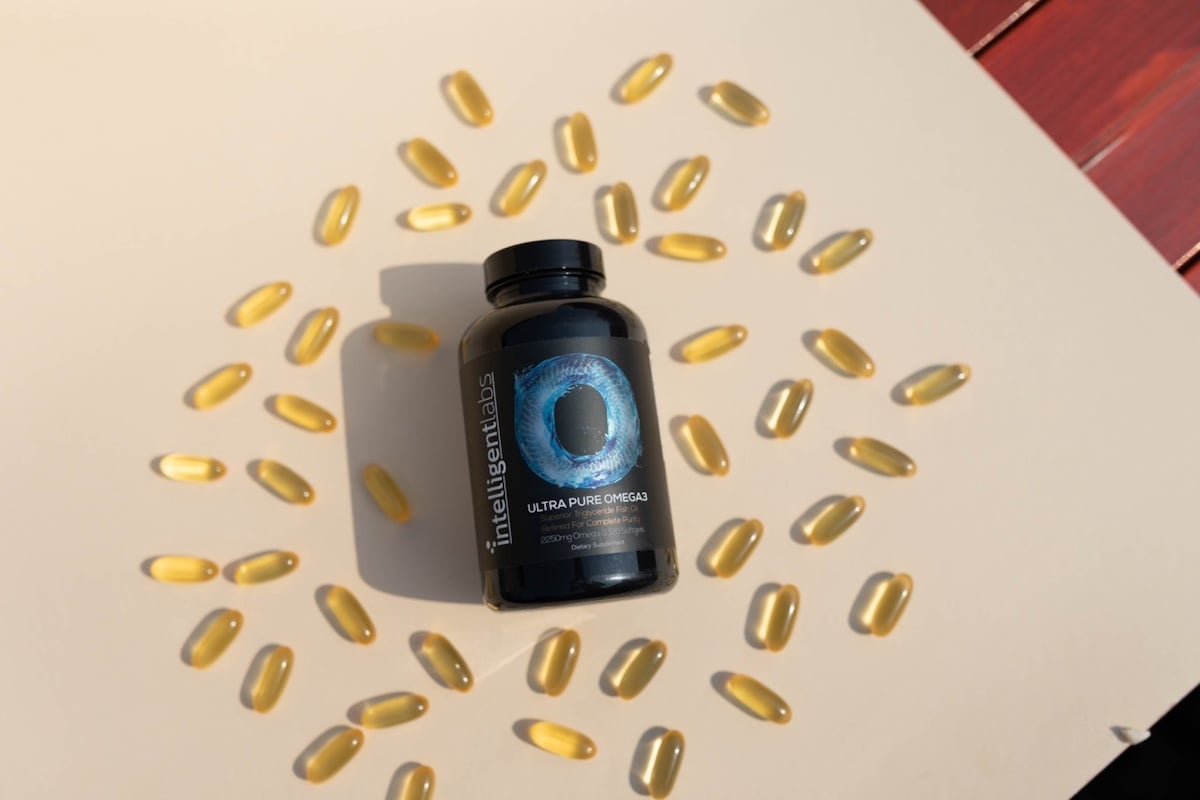A new mother often finds the long-awaited arrival of her baby to be the happiest time of her life. She usually spends the first few months filled with absolute joy while getting to know her baby. Pregnant women look forward to this for 9 whole months! However, this isn’t always the case. Sometimes, feelings of depression and anxiety overshadow that joy. Let’s explore whether supplementing with our Ultra Pure Omega-3 fatty acids can help prevent and improve postpartum depression.
Table of Contents
What is postpartum depression?
Postnatal or postpartum depression is a common disorder among new mothers. It affects approximately one in seven women.1
The body goes through many changes during pregnancy. One of those changes is increased hormone production, especially estrogen and progesterone. Immediately after giving birth, those hormone levels drop sharply. That alone can lead to mood irregularities and symptoms of depression.
Combine that with getting less sleep than normal, along with the other stresses that come with adjusting to taking care of a baby, and the chances of falling into depression greatly increase. The condition usually develops within six months of giving birth and has all the standard symptoms of clinical depression.
What happens to Omega-3 levels during pregnancy?
A woman’s omega-3 levels can get depleted during pregnancy. This is because a fetus has high demands for omega-3 fatty acids, which are vital for fetal development. If mom already has low omega-3 levels before pregnancy, and isn’t regularly topping up her omega-3 stores via food or supplements, then this depletion can become significant. 2
Pregnant women, especially in the last trimester, and women who have just given birth are more prone to having an omega-3 deficiency. In other words, the deficiency can be cumulative. The more children a woman has the more omega-3 depleted she can become (assuming she doesn’t supplement).
Can low omega-3 lead to postpartum depression?
The depletion of omega-3 fatty acids appears to play a role in the development of postpartum depression. New mothers with lower levels of omega-3 were observed to have a higher risk of experiencing the disorder. One study found that women with low levels of omega-3 in their breast milk and those with low seafood intake had higher rates of postpartum depression.3
There are numerous studies examining the relationship between an omega-3 deficiency and postpartum depression. The vast majority of them end with the same conclusion and that is omega-3 alone may not be effective as a treatment for postpartum depression. However, when added to standard treatment, omega-3 may help improve symptoms.
It’s unlikely to cure this disorder completely, but omega-3 could help. And since it’s entirely safe, there’s nothing to lose by taking it before and after giving birth. In fact, here’s our science-backed research on 24 omega-3 fish oil benefits!

Can Omega-3 help with postpartum depression?
Omega-3 has a well-documented history of working well when dealing with different types of depression.4 However, when it comes to postpartum depression, the jury’s still out. This is mostly because only a few studies have been done on this particular subject. So far, their results paint a mixed picture.
One of the studies compared women with postpartum depression. They were assigned to two groups: one took 1.9 grams of omega-3 daily, and the other received a placebo. By the end of the study, the omega-3 group showed improvements that were not seen in the placebo group. However, the difference was not statistically significant, indicating only a minor improvement with omega-3. 5
Omega-3 could help as an additional aid to standard treatment for postpartum depression. But there isn’t much evidence to support omega-3 as a treatment on its own. However, when it comes to omega-3 supplementation and preventing postnatal depression, it’s a very different story. There is quite a bit of evidence that omega-3 deficiency can be a contributing factor for developing depression post-birth, so preventing deficiency is a must!6
So, should you take Omega-3 for postpartum depression?
Yes, even a bit of help can make a difference, especially when dealing with a disorder that can be a nightmare!
As we’ve learned in this blog post, omega-3 may be very effective at preventing postpartum depression from developing in the first place.7 Pregnant women should make it a point to have a decent intake of omega-3 fatty acids daily throughout their pregnancies (here’s how much fish oil dosage to take each day).
With that said, taking omega-3 to treat postnatal depression may not work so well, at least not when taking it alone. The good news is that combining omega-3 with standard treatments might be a more effective option.
💬 Something on your mind? Share your thoughts in the comments. We love hearing from curious minds.
📩 And while you’re here, join our newsletter for more smart stuff (and secret perks)!
References:
- Mughal S, Azhar Y, Siddiqui W. Postpartum Depression. [Updated 2022 Oct 7]. In: StatPearls [Internet]. Treasure Island (FL): StatPearls Publishing; 2024 Jan. Available from: https://www.ncbi.nlm.nih.gov/books/NBK519070/ ↩︎
- Coletta, Jaclyn M et al. “Omega-3 Fatty acids and pregnancy.” Reviews in obstetrics & gynecology vol. 3,4 (2010): 163-71. ↩︎
- Hibbeln, Joseph R. “Seafood consumption, the DHA content of mothers’ milk and prevalence rates of postpartum depression: a cross-national, ecological analysis.” Journal of affective disorders vol. 69,1-3 (2002): 15-29. doi:10.1016/s0165-0327(01)00374-3 ↩︎
- Freeman, Marlene P et al. “Omega-3 fatty acids: evidence basis for treatment and future research in psychiatry.” The Journal of clinical psychiatry vol. 67,12 (2006): 1954-67. doi:10.4088/jcp.v67n1217 ↩︎
- Freeman, Marlene P et al. “Omega-3 fatty acids and supportive psychotherapy for perinatal depression: a randomized placebo-controlled study.” Journal of affective disorders vol. 110,1-2 (2008): 142-8. doi:10.1016/j.jad.2007.12.228 ↩︎
- Markhus, Maria Wik et al. “Low omega-3 index in pregnancy is a possible biological risk factor for postpartum depression.” PloS one vol. 8,7 e67617. 3 Jul. 2013, doi:10.1371/journal.pone.0067617 ↩︎
- De Vriese, S R et al. “Lowered serum n-3 polyunsaturated fatty acid (PUFA) levels predict the occurrence of postpartum depression: further evidence that lowered n-PUFAs are related to major depression.” Life sciences vol. 73,25 (2003): 3181-7. doi:10.1016/j.lfs.2003.02.001 ↩︎





